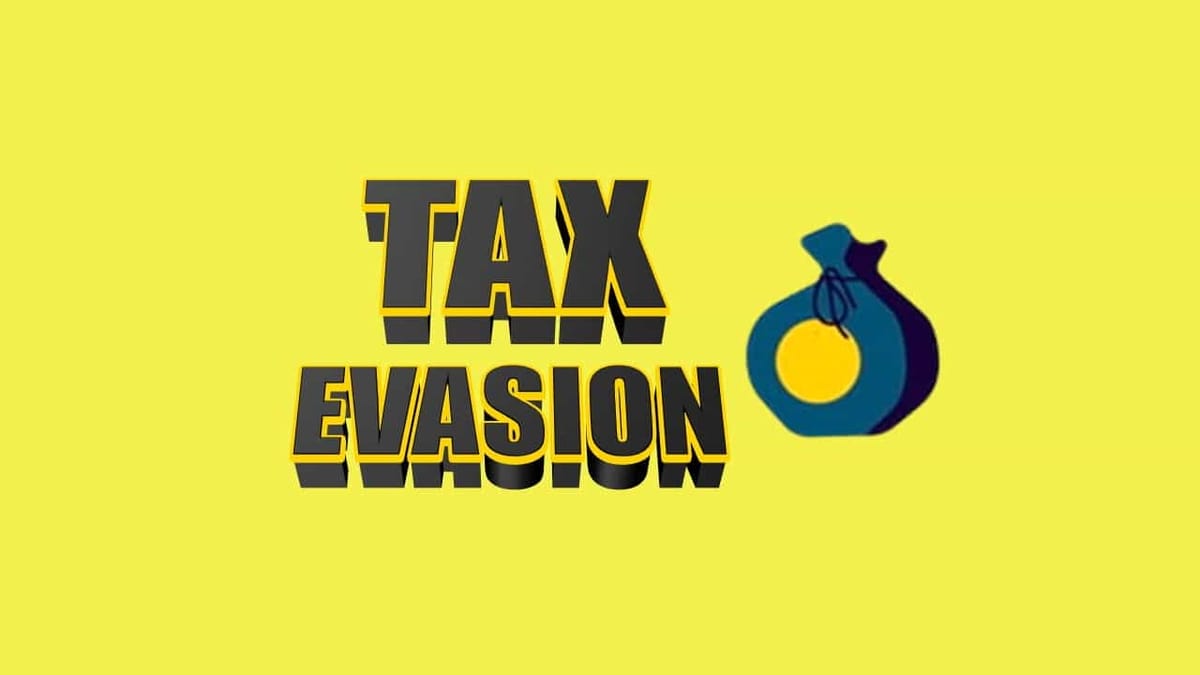There have been many ways by which GST evasion has been happening, such as issuing fake invoices and claiming input tax credit (ITC), this affect the GDP of economy.
Reetu | Jan 21, 2023 |

Root out Tax Evasion: What causes Tax Evasion?; How Tax Evasion Distort Development
In order to increase the tax-to-GDP ratio, the Centre would be wise to address evasion and avoidance on multiple fronts. These include raising agricultural income over the income tax threshold, plugging GST avoidance, boosting the share of income tax paid by non-salaried classes, reducing tax evasion by multinational businesses (MNEs), and plugging tax evasion owing to illicit trade and smuggling.
The agriculture and allied sector has contributed only to 18 per cent of GDP, where about 45 per cent of the population are employed. However, because agricultural revenue is not taxed, regardless of the quantum of income, unexplained money is reported as agricultural income by vested interests. Those who demonstrate a yearly farming income of more than a certain amount may be taxed moderately to begin with. However, it is an extremely difficult political manoeuvre.
Fake invoices
There have been many ways by which GST evasion has been happening, such as issuing fake invoices (without supplying goods and services) and claiming input tax credit (ITC), particularly in the construction sector (which accounts for about 5% of our GDP); round-tripping, particularly when the distance of transport is short, where the goods could be transported more than once within the valid time of an e-way bill; and unbundling of a single supply contract to reduce the amount of GST owed.
Since the introduction of the GST in 2017, the amount of GST collected has steadily increased, which indicates that the economy is getting more formalised. The informal sector becoming formal simply means that the incomes and profits from the informal economy are well captured and taxed in accordance with the present tax regulations, broadening the tax base. This does not mean that all economic activity must be high-tech. It is simple to administer and will deter tax evasion to apply a single rate of GST to all goods and services. However, that would be unfair.
Even though the Finance Ministry and the GST Council have been working to prevent GST evasion, the free flow of data across the GST Network (GSTN) with other systems like FastTag, the Centralized Processing Center of Direct Taxes, the Aadhaar, Passport, PAN and other portals that are evolving will go a long way in improving GST compliance.
Despite only making up around 15% of the overall taxes collected by the Central Government, personal income tax collection is severely skewed. The average wage earner pays three times more than a non-salaried taxpayer, and this does not include people who file income tax returns but pay no tax, according to the 2018–19 Budget speech.
This anomaly is primarily caused by the non-salaried not disclosing their genuine income. The better the disclosure of professionals’, businesspeople’, and merchants’ genuine income and the rise in income tax from non-salaried taxpayers, the more GST compliance there is. To collect more income tax from non-salaried taxpayers, the direct and indirect tax departments need to work together.
Regarding MNE tax fraud, profits have been artificially moved to countries with low or no taxes. According to estimates, MNE tax fraud cost India about 75,000 crore in 2020–21. India attempted to lessen the effects of MNE tax fraud by joining the Inclusive Framework of G20 nations in June 2021. India could leverage its leadership position as the G20’s host nation in 2023 to further curb MNE tax fraud.
Smuggling and illegal trading should be investigated. A FICCI CASCADE report claims that alcohol and tobacco products are the two items that are smuggled the most as a result of excessive taxation. According to the report, the anticipated tax loss to the government as a result of illicit trade is Rs.15,262 crore for alcoholic beverages and Rs.13,331 crore for tobacco goods.
According to the analysis, which also includes three additional sectors including mobile phones and fast-moving consumer products, both of these sectors account for roughly 49% of the total revenue loss to the government as a result of illicit marketplaces.
When it comes to dealing with ill-gotten money (for example, through corruption or tax evasion) and its detrimental impact on development results, we development professionals are often guilty of fiddling at the borders of the problem while avoiding dealing with its fundamental cause. We are seeking to resolve this dilemma through current work.
Furthermore, revenue lost as a result of corruption and tax evasion indicates a diversion (“leakage”) of financial resources from the government budget to private spending. And private expenditures have significantly lower “multiplier impacts” than expenditures on – for example: agricultural fertilisers, education, health, and infrastructure.
In case of any Doubt regarding Membership you can mail us at contact@studycafe.in
Join Studycafe's WhatsApp Group or Telegram Channel for Latest Updates on Government Job, Sarkari Naukri, Private Jobs, Income Tax, GST, Companies Act, Judgements and CA, CS, ICWA, and MUCH MORE!"